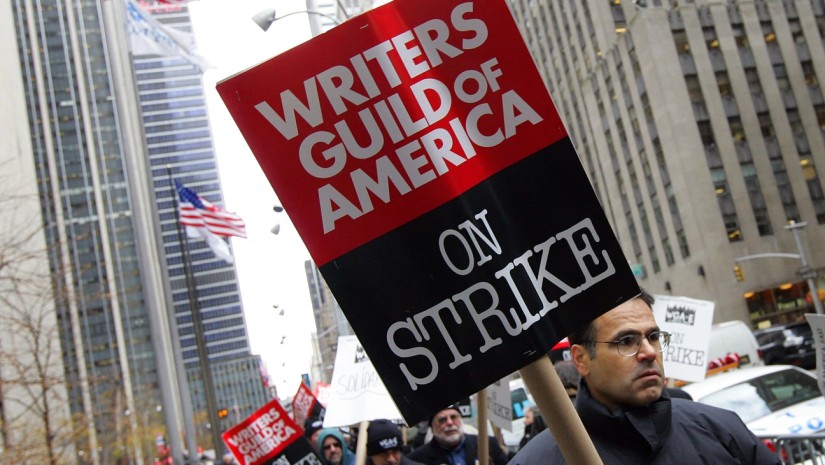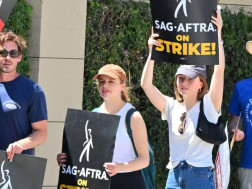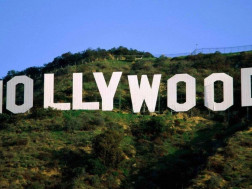The Hollywood writers strike is finally over after 148 days.
Leaders of the Writers Guild of America have unanimously voted to authorize its members to return to work following the tentative agreement reached Sunday between union negotiators and Hollywood’s studios and streaming services, effectively ending the months-long strike that has paralyzed the industry.
“The WGAW Board and WGAE Council also voted to lift the restraining order and end the strike as of 12:01 am PT/3:01 am ET on Wednesday, September 27th. This allows writers to return to work during the ratification process, but does not affect the membership’s right to make a final determination on contract approval,” the WGA wrote online.
The tentative agreement, reached earlier this week, marks a turning point for Hollywood’s film and TV studios after both the WGA and SAG-AFTRA, the union that represents actors, went on strike this summer to fight for higher pay and protections against artificial intelligence.
The contract, which will expire in May 2026, includes pay increases, better benefits, protections against the studios’ use of artificial intelligence, guarantees for streaming compensation, longer-duration employment terms and other perks.
Most writers’ minimum pay will increase 5% immediately, another 4% in May 2024 and then another 3.5% in May 2025. Health fund contributions will increase by a half percentage point to 12% of companies’ reportable earnings. And writers working on the same script will no longer need to split pension and health contributions.
Writers were particularly concerned about the growth of streaming, because they lose out on residuals that traditional television shows paid when they were re-run.
For big streaming projects, namely feature-length productions with a budget of at least $30 million, minimum writer compensation for a story and teleplay will increase 18% to $100,000. Residual pay minimums for big-budget streaming productions will increase by more than a quarter. And other residuals for video on-demand services will yield a 50% bonus to writers when the shows are watched by a fifth of domestic subscribers in the first three months of a project’s run. That means writers could take home more than $9,000 for a half-hour eposide, and more than $16,000 for a one-hour episode for big-budget productions on the top services.
Those services, such as Netflix, Disney+ and Max, also pledged to increase transparency about how many hours certain programs were streamed.
A summary of the agreement by the WGA included AI protections. “AI can’t write or rewrite literary material,” according to the summary, which also noted a requirement that AI-generated materials must be disclosed to writers.
The agreement also addressed streaming residuals and transparency for data around streaming. The rise of Netflix and other such services over the years have helped transform Hollywood, becoming a major issue in the writers’ and actors’ strikes.
Although union leadership has allowed union members to return to work, their contracts with the studios have not yet been officially ratified, meaning union members may still reject the terms of the deal, potentially prolonging a historic strike that has crippled many parts of the US entertainment industry.
A SAG-AFTRA spokesperson said in a statement regarding its own negotiations that the union is “reviewing the WGA’s tentative agreement and are committed to achieving a fair and just deal for our members.”
“We remain on strike in our TV/Theatrical/Streaming contract and will inform our members when there is negotiations news to share. We will not speculate regarding schedule or next steps,” the spokesperson said.
The union said “eligible voters will be able to vote from October 2nd through October 9th, and will receive ballot and ratification materials when the vote opens.”
The WGA officially began striking on May 2, making the strike one of the longest in its history. The current record was in 1988 when the WGA struck for 154 days.
The Hollywood strikes have been costly, with a nationwide economic impact of more than $5 billion, according to economists. The pain has been felt by more than just Hollywood insiders; restaurants and businesses that cater to the entertainment industry, like makeup and custodial work, have experienced a downturn, as well.
Bill Maher, who said he would return to air during the writers strike before backing off that pledge, announced Tuesday his show would officially come back Friday, CNN reports.























